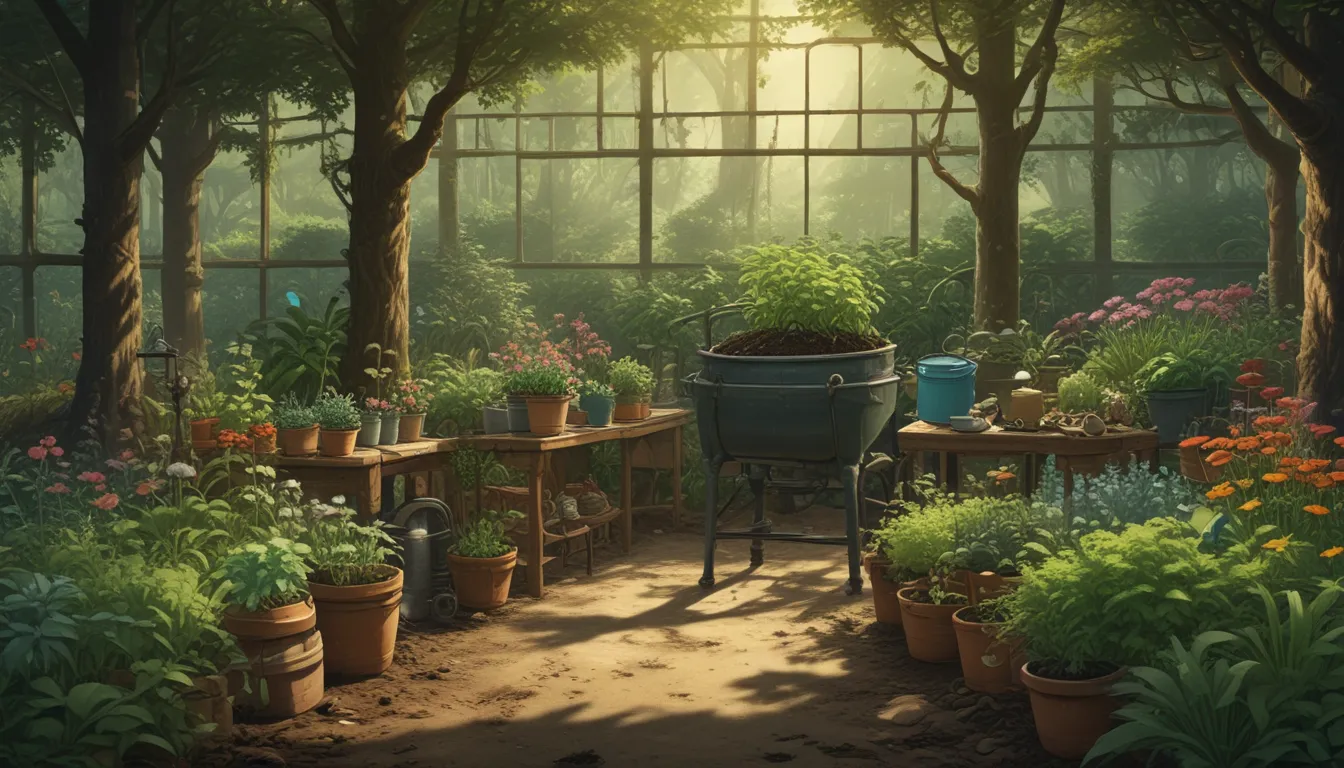All About Compost Tea: How It Nourishes and Protects Your Plants

If you’re a gardener, you probably already know about the benefits of compost. It’s a fantastic way to enrich your garden soil and help your plants thrive. But did you know that you can also create a nutrient-rich tea from compost that provides even more benefits to your garden and indoor plants? In this article, we’ll explore the world of compost tea, how to make it, and why it’s such a valuable addition to your gardening routine.
Understanding Compost Tea
Compost tea is a liquid derived from steeping or brewing compost in water. It is rich in nutrients, especially nitrogen, and contains beneficial microorganisms that can help your plants grow strong and healthy.
Why It’s Worth Brewing
Compost tea can be used to drench the soil after transplanting seedlings into your garden. It helps the seedlings develop a robust root system, making them more resilient and better able to thrive in their new environment. Additionally, compost tea can be used to nourish seedlings in flats or potted plants indoors, giving them a nutrient boost that can help combat droopiness and other signs of poor health.
One of the great things about compost tea is that it can replace fertilizers and pesticides that may be harmful to your plants or the environment. By restoring beneficial microorganisms to your garden, compost tea supplements the work you’ve already done to enrich the soil and create a healthy growing environment.
In addition to soil drenching, compost tea can also be sprayed directly onto the leaves of your plants. This can provide short-term protection against various diseases and help plants recover from stress. While it’s not a cure for existing plant diseases, compost tea can boost overall plant health and vitality.
What You’ll Need
Making compost tea can be as simple or complex as you’d like. Here are the basic materials you’ll need to get started:
- Five-gallon plastic bucket
- One gallon of mature compost
- Aquarium pump
- Gang valve
- Plastic hose
- Unsulfured molasses
- Non-chlorinated water
- Strainer (nylon stocking, pantyhose leg, pillowcase, or flour sack towel)
To ensure your compost tea is effective, be sure to use compost that has been properly heated to kill off pathogens and weed seeds. Different types of plants may benefit from compost tea made with specific types of microorganisms, so be sure to research what will work best for your garden.
Brewing Your Compost Tea
Now that you have your materials ready, it’s time to set up your compost tea maker. Here’s a step-by-step guide to help you get started:
- Cut the plastic hose into three equal length pieces.
- Attach the hose pieces to the gang valve.
- Secure the gang valve to the lip of the bucket, ensuring the ends of the hoses are submerged.
- Add the compost to cover the hose ends.
- Pour in the non-chlorinated water.
- Add the molasses.
- Turn on the pump.
- Let the pump run for two to three days, stirring occasionally.
- After brewing, strain the tea into another bucket for immediate use.
It’s important to use the compost tea immediately after brewing to ensure the beneficial microorganisms remain alive and active. You can apply the tea to your plants using a turkey baster or by pouring it directly onto the soil around your plants.
Enhancing Plant Health
Compost tea has been shown to improve plant health, taste, and nutritional quality. By reintroducing beneficial microorganisms to your garden, you can create a thriving ecosystem that supports plant growth and resilience.
Remember to follow the recommended guidelines for compost tea brewing and application to avoid any negative effects on your plants. With proper care and attention to detail, compost tea can be a valuable addition to your gardening routine.
If you have any experience making compost tea or have tips to share, we’d love to hear from you! Share your thoughts in the comments below.
Looking for more gardening tips and advice? Check out our other guides:
- Can You Compost Diseased Plants?
- What Is a Survival Garden? Tips to Grow Your Own
- Planting Your First Vegetable Garden: A Beginner’s Guide
- The Ultimate Guide to Understanding Garden Soil
This in-depth guide provides valuable insights into the world of compost tea and how it can benefit your plants. By following the step-by-step instructions and tips provided, you can create a nutrient-rich elixir that promotes plant health and growth. Share your thoughts and experiences with compost tea in the comments below, and happy gardening!





